Co-Living

www.iceniprojects.com
iceni-projects
iceniprojects

Introduction Our Projects
Our People
A Multi-Skilled Consultancy

Formed in 2005, Iceni is now the market leader and preferred consultancy for a fast-growing number of clients. We have always sought to provide the skills of an advisor with the instincts of a developer.
We achieve this by knowing our tradecraft –the technical skills that come through years of education and on-the-job experience that is recognised by professional accreditation. But it is also daring to be different; being proactive and thinking strategically. Our client relationships are built on trust, togetherness, enthusiasm, and a courage to challenge, where appropriate. The technical specialisms that the company hold have widened, but this fundamental objective remains the same. We are committed to putting our client’s interests first – and providing them with the tools to significantly improve their performance.





Your Strategic Advisors


Ian Anderson
Chief Executive

Andrew Gale
Chief Operating Officer

James Bompas
Director | Business Devt. & Strategic Planning

Nick Ireland Director

Matt Kinghan Director

Paul McColgan Director


Anna Sutherland -Bamber
DCO Director
Callum Fraser
Director

Lewis Westhoff
Director

Lorna O’Carroll
Director
We’re proud to say that we’re an award-winning consultancy. We’ve a positive, creative mindset, and we’re passionate about what we do.

Claire Cogar Director

Gemma Gallant Director

Gary Mappin
Director

Ian Gallacher
Director

Laurie Handcock Director

Nick Walker Director

James Jaulim Director



Greg Mahon Director

Jonathan Stewart Director


Danny Collins Director


Silke Gruner Director


Sam Griffiths Director

Ian Mayhead
Director


Nick Grant
Director

James Waterhouse
Director

John Mumby
Director
Simon Fowler
Director
Clive Burbridge
Director
Rob Amey
Director
Kieron Hodgson
Director
Leona Hannify
Director
Co-Living

Gone are the days of owning ‘things’, increasingly we own a Kindle – not books, we watch Netflix – not DVDs, and we listen to Spotify – not CDs. We want everything available now, and of a high quality. Life needs to be flexible. In turn, our requirement for space has decreased (whether we acknowledge it or not), as we spend more of our time and disposable income on experiences, entertainment and eating out. So why not build housing that responds to our changing needs?
Co-living has moved from the margins of the housing supply to the mainstream of rental living in answer to this call. Across England and Scotland, developers, investors and local authorities are recognising its role in providing well-managed, flexible homes for a growing generation of single households.
The scale of activity is increasing at pace. According to Savills, there are now almost 9,000 operational co-living rooms across the UK, with another 5,500 under construction and over 13,000 consented. Planning activity has accelerated sharply: in 2024 alone, applications were lodged for nearly 9,000 new rooms –an 87% increase on the previous year. The trajectory is clear: by 2027, annual delivery could rise to around 3,400 units a year, nearly four times the historic average.
London continues to dominate, accounting for around threequarters of built stock to date. But regional cities are quickly catching up. Manchester has welcomed the country’s largest scheme to date, with more than 1,600 beds delivered under Vita’s Union brand. Birmingham has its first large scheme in the pipeline, while Glasgow and Edinburgh are beginning to embrace co-living through draft planning guidance and highprofile projects such as the Met Tower conversion.
This growth is driven by deep demand fundamentals. There are an estimated 1.7 million people currently renting in shared accommodation in UK cities – a vast pool of potential residents for professionally managed co-living. With rents in the private market at record highs, co-living often compares favourably: Savills analysis shows that all-inclusive co-living rents in London average around 7% lower than equivalent studio apartments once bills are accounted for.
Iceni are working with some of the largest co-living developers and operators in the UK, including:


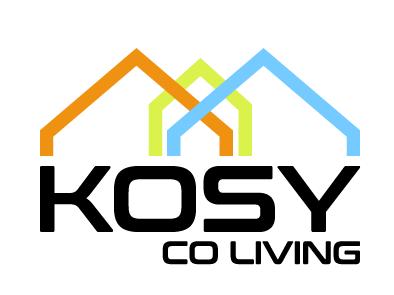

What does Co-Living offer?

Put simply, co-living is purpose-built, managed developments that include a combination of personal and shared amenity space.
The concept of co-living has undoubtedly come into its own in recent years, particularly in the USA and Europe. Now the UK is catching on, and our research suggests that the market for these types of developments with excellent communal facilities are desirable to an increasingly larger proportion of the population.
In fact, research suggests that homeowners think building more co-living developments and micro-homes would help to solve the housing crisis. A survey of 2,000 homeowners, by the Federation of Master Builders (FMB), asked whether people thought there was a housing crisis in the UK and, if so, how to address that shortage.
The most cited answers to solutions to the housing crisis were: 33 per cent – build more co-living developments; 31 per cent – build more micro-homes in urban areas and 24 per cent – encourage more multigenerational living.
In Recognition of the accelerating role of Co-Living in helping to meet the challenges of the housing crisis, the Government’s Housing Delivery Test Guidance now dictates ‘communal living’ will be counted towards housing delivery at a ratio of 1.8:1, formalising the typology as a contributor to a monumental housing need.
London Co-Living
London is home to the earliest and largest co-living schemes. The policy framework is now firmly in place: the London Plan Policy H16 establishes co-living (termed Large-Scale Purpose-Built Shared Living) as a sui generis use, while the GLA’s 2024 London Plan Guidance sets practical benchmarks for space, daylight, management and tenancy standards. Together, they create a pathway for high-quality schemes in well-connected locations, but with a clear expectation of affordable housing contributions.
This regulatory clarity has underpinned a surge of delivery. As of 2025, there are around 6,700 rooms in London either consented or under construction, on top of the 9,000 already operational. The GLA recognises that co-living contributes to housing targets (counted at a ratio of 1.8 bedrooms to one conventional home) and encourages schemes in central and inner London locations with strong transport links.
Yet borough positions vary. Some, like Lambeth, Hackney and Southwark, have adopted supportive policies with clear quality benchmarks. Others, such as Brent and Tower Hamlets, take a case-by-case approach, relying on London Plan Policy H16 and the GLA guidance. Meanwhile, boroughs including Islington and Kensington & Chelsea have signalled outright resistance, concerned about the impact on conventional housing delivery. Emerging policies in Camden, Harrow and Newham suggest that more boroughs are moving to codify their approach, but the patchwork remains. Iceni maintains the project experience and borough intelligence to advise strongly on this variety.
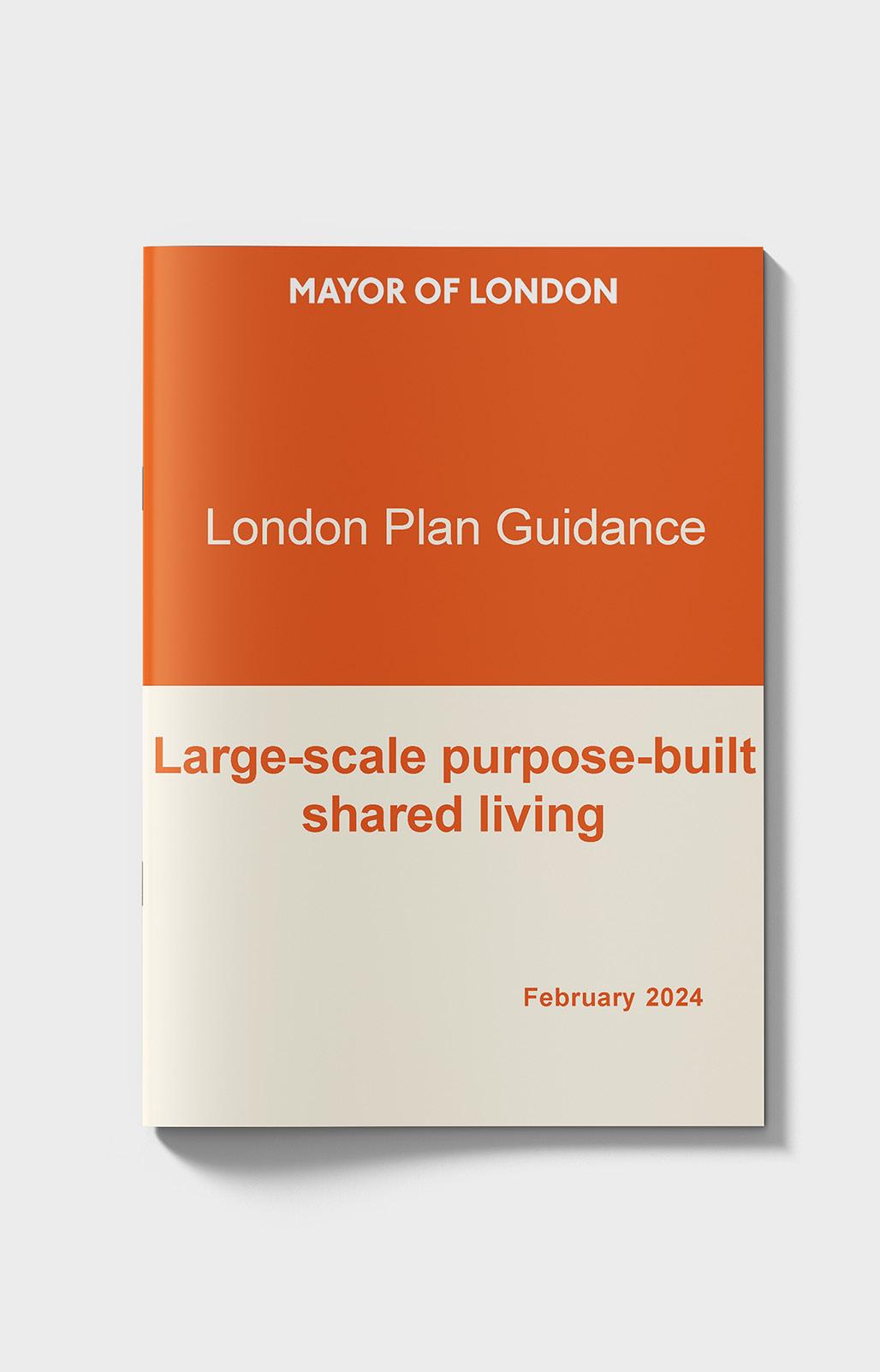
London Co-Living The Policy Patchwork
Borough Status
Lambeth
Hackney
Southwark
Brent
Adopted policy (Local Plan 2021, Policy H13 on LSPBSL)
Adopted policy (LP33, Policy LP21 Large scale Purpose Built Shared Housing)
Adopted policy (Southwark Plan 2022 –Purpose Built Shared Living)
No specific LSPBSL policy (Local Plan 2022; HMO SPD)
Tower Hamlets No specific LSPBSL policy (Local Plan 2020)
Haringey No adopted policy
Camden Emerging policy (draft New Local Plan)
Borough Summary
Supportive in principle with Lambeth specific standards for private rooms and communal provision; H16 applies.
Supportive subject to criteria on location, quality and management.
Supportive with clear expectation of affordable housing contributions in line with borough policy; assessed case by case.
Case by case under H16; several LSPBSL permissions demonstrate a broadly supportive stance in accessible locations.
Case by case under H16 in growth areas (City Fringe, Canary Wharf); multiple applications/consents.
First co living scheme approved (2025) indicating willingness where quality and location tests are met.
Emerging support subject to contributions and quality; currently assessed using London Plan plus draft policy context.
Harrow Emerging policy (Reg 19 draft Policy HO9) Supportive with restrictions on location, amenity and management; aligns to H16.
Wandsworth Emerging partial review (Policy LP29)
Islington
Adopted Local Plan 2023; emerging position historically unsupportive
RB Kensington & Chelsea No adopted co living policy; emerging stance historically unsupportive
Westminster
Newham
City Plan adopted 2021; no dedicated co living policy
Emerging policy (Local Plan refresh – Policy H9 HMOs & LSPBSL)
Restrictive. Co living generally resisted unless the site is unsuitable for conventional housing and local needs are better met by LSPBSL; requires contributions and robust management.
Historically unsupportive stance towards co living in plan making; current decisions still rely primarily on London Plan H16.
No dedicated policy; evidence from plan making commentary indicates resistance to co living as a typology.
Case by case under H16 and City Plan policies; cautious approach in high value residential contexts.
Direction of travel to define where larger HMOs and LSPBSL may be acceptable, with size/quality controls reflecting H16/LPG.
Co Living Borough Summary
Harrow
Status: Emerging policy (Reg 19 draft Policy HO9)
Borough Summary: Supportive with restrictions on location, amenity and management; aligns to H16.
Islington
Status: Adopted Local Plan 2023; emerging position historically unsupportive
Borough Summary: Historically unsupportive stance towards co‑living in plan‑making; current decisions still rely primarily on London Plan H16.
Haringey
Status: No adopted policy
Borough Summary: First co‑living scheme approved (2025) indicating willingness where quality and location tests are met.
Brent
Status: No specific LSPBSL policy (Local Plan 2022; HMO SPD)
Borough Summary: Case‑by‑case under H16; several LSPBSL permissions demonstrate a broadly supportive stance in accessible locations.
Camden
Status: Emerging policy (draft New Local Plan)
Borough Summary: Emerging support subject to contributions and quality; currently assessed using London Plan plus draft policy context.
RB of Kensington & Chelsea
Status: No adopted co‑living policy; emerging stance historically unsupportive.
Borough Summary: No dedicated policy; evidence from plan‑making commentary indicates resistance to co‑living as a typology.
Wandsworth
Status: Emerging partial review (Policy LP29)
Borough Summary: Restrictive. Co‑living generally resisted unless the site is unsuitable for conventional housing and local needs are better met by LSPBSL; requires contributions and robust management.
Hackney
Status: Adopted policy (LP33, Policy LP21
Large‑scale Purpose‑Built Shared Housing)

Lambeth
Borough Summary: Supportive subject to criteria on location, quality and management.
Newham
Status: Emerging policy (Local Plan refresh – Policy H9 HMOs & LSPBSL)
Tower Hamlets
Borough Summary: Direction of travel to define where larger HMOs and LSPBSL may be acceptable, with size/quality controls reflecting H16/LPG.
Westminster
Status: No specific LSPBSL policy (Local Plan 2020)
Borough Summary: Case‑by‑case under H16 in growth areas (City Fringe, Canary Wharf); multiple applications/consents.
Status: City Plan adopted 2021; no dedicated co‑living policy.
Southwark

Borough Summary: Case‑by‑case under H16 and City Plan policies; cautious approach in high‑value residential contexts.
Status: Adopted policy (Southwark Plan 2022 –Purpose‑Built Shared Living)

Borough Summary: Supportive with clear expectation of affordable housing contributions in line with borough policy; assessed case‑by‑case.
Status: Adopted policy (Local Plan 2021, Policy H13 on LSPBSL)
Borough Summary: Supportive in principle with Lambeth‑specific standards for private rooms and communal provision; H16 applies
The Direction of Travel

The story of co-living in London is one of consolidation and raising standards. The first generation of co-living units followed the London Plan guidance for 18sqm flats. But market sentiment has given way to schemes with larger units (often 20–30 sqm), more varied layouts and a far richer amenity offer – from co-working floors to wellness studios, cinemas and roof terraces. Developers are recognising that bigger buildings with around 250–300+ rooms provide the scale to deliver these facilities and create a genuine sense of community.
Demand shows no sign of abating. New schemes have been leasing up rapidly – Folk’s Battersea project reached full occupancy within three months – and investor appetite is growing. With a weight of capital focused on residential alternatives, coliving is increasingly viewed as a “third pillar” alongside Build-toRent and Purpose-Built Student Accommodation.
Looking ahead, the next five years will be decisive. If local policy frameworks continue to mature and national government gives clearer recognition, co-living could become a mainstream component of housing supply across the UK. For London, the challenge will be balancing growth with quality: ensuring schemes are not just tolerated, but welcomed as part of a diverse, inclusive housing offer. Iceni will continue to remain invested in the sector, with existing and emerging projects on a roster giving us the strongest understanding of how best to capture the enormous potential of this emerging sector.
We provide specialist advice in the fields of archaeology; delivery; design; EIA management; engagement; heritage; planning; sustainable development, townscape and transport.
Our team are talented, relentless, intelligent, bold and experienced. Individually or collectively, you’ll know when you’re with Iceni Projects.
Co-Living: The Answer to a Number of Challenges

They are compact, but certainly not compressed and do not restrict an occupier enjoying arguably, a healthier and more sociable lifestyle than those people in traditional housing.
Co-living responds to a number of challenges that the housing market presents, namely:
Household Formation | A decline in the size of households, but growth in their overall number has seen an increased demand for units to meet the needs of younger, single persons and couple household sizes.
Growing Population | London has seen its population increase by 25% in the past two decades (1996-2016) and is facing continued growth in the medium to long-term1. Manchester and other key cities share this trend, with their populations also expected to expand.
Affordability | The average rental price in London is now around the £2,000 mark2, and whilst it’s more affordable in Manchester, the average rent is still pushing many young professionals into HMO’s and low quality PRS.
Expectations | If the millennial generation is going to be renting for a long time, we expect to enjoy the experience. Savills reports that a quarter of tenants surveyed moved out of their last rental due to poor management – an obvious sign of a gap in the market.
Cultural Change | James Wallman’s report Can we fix it?3 discusses the change in cultural norms as a result of the UK population generally living longer.
As a result, we are likely to enter key stages of our lives later, because there really is no rush so we’re happy to spend more time experimenting through experience than believing there is a deadline for each life stage in which we must meet. As a result, the death of the first-time buyer will result in the creation of a ‘rental lifecycle’ depicted below. Why shouldn’t we take the first step in creating homes for those in the first three stages?
1 GLA, 2016 based population projections
2 https://www.homesandproperty.co.uk/property-news/average-london-rents-hit-2000-per-month-a122776.html
3 Can we fix one small but significant part of London’s broken housing market?, James Wallman
Co-Living: Examples
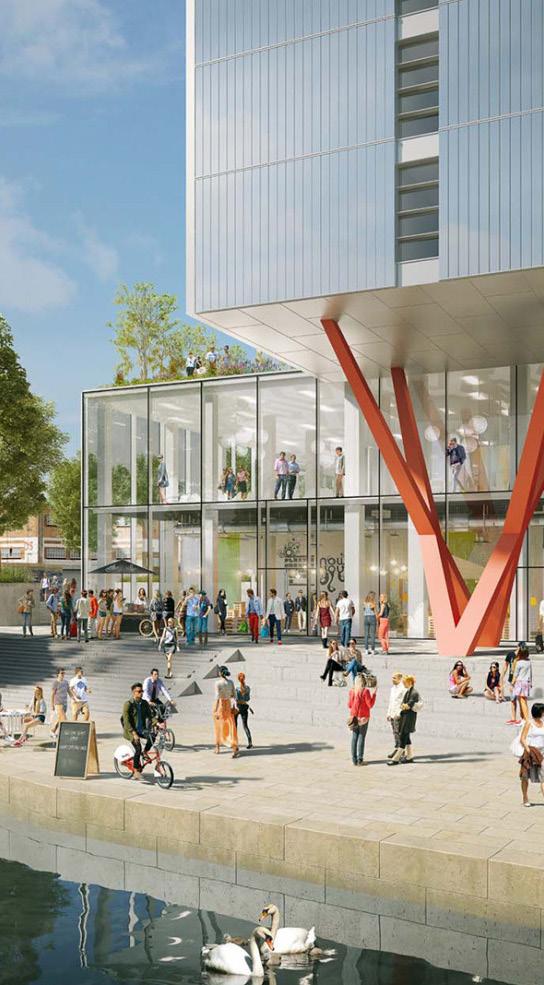
Large & Small
The Collective’s Old Oak in Ealing, London is one of the largest co-living development’s out there which is specifically targeted to those people in the first three stages of the ‘rental lifecycle’.
The Collective’s ethos is around supplying high spec serviced studio’s, apartments and rooms along with shared amenity spaces such as cinemas, gyms, spas, co-working spaces, bars and restaurants.
IQ’s Echo Street scheme in Manchester looks to offer the same type of service and similar amenities but differs to The Collective where it combines purpose-built student accommodation and co-living accommodation for graduates. This allows residents to enjoy a seamless transition from student to young professional, upgrading their accommodation or moving in with friends when their circumstances change.
In contrast to these large schemes, we’re aware of a growing market of smaller co-living developments designed to appeal to a different type of renter. These developments often take smaller existing buildings and refurbish them (perhaps creating only 10-15 rooms), with greater emphasis on developing authentic, design led residential communities. Think-boutique style apartment block with curated experiences and events, for those who want to be selectively social.
There are already a good number of examples in London as well as smaller cities such as Dublin.
Development Economics4 reports that these types of co-living schemes can generate support for other local services and facilities by stimulating demand for cafés, restaurants and other types of cultural amenities as a result of the properties being occupied near
100% of the time. Co-living developments can also reinforce the relationships between businesses, creating environments where linked industries can interact and collaborate- ‘natural networking’. This is particularly true for small start-up businesses where co-living projects can help to stimulate the urban buzz of city locations as they provide an affordable option for younger workers #digitalnomads.
Young & Old
Increasingly, we are also seeing creative developments that seek to cater for those people in the later stages of the ‘rental lifecycle’ like families and retirees. For example:
New Ground co-housing in north London is designed for members of the Older Women’s co-housing group.
Marmalade Lane Co-housing in Cambridge, a development of 42 homes, designed with shared facilities and spaces such as a central pedestrianised street and shared garden, making it suitable for young families.
The Queen Elizabeth Olympic Park -The model comprises a residential plot which holds a three- four-bedroom family dwelling with a separate self-contained annexe in the form of a one-bedroom house which could be used by grandparents, young couples, a recently qualified graduate or student, or a family member with a disability who wants to live independently but wishes to remain in close proximity.
At present, the co-living trend is certainly focusing on the ‘young professional’ as so many of its features attract the millennial generation. However, these additional examples showcase the breadth of the co-living market and highlight how it can respond to demands from other groups.
Regulatory Approach

What happens outside the walls of one’s apartment is just as important, if not more so, than what goes on inside”.
Use Class
Both The Collective and IQ’s Echo Street scheme utilises the Sui Generis Use Class category. However other co-living developments may utilise the more traditional C3 Use Class. The application of a C3 or Sui Generis Use Class generally depends upon the availability of ‘cooking facilities’ required for day-to-day private domestic existence. The Collective’s newest co-living scheme at Stratford contains both private kitchenettes and larger shared kitchens.
In London, developers should be aware that the Draft New London Plan contains a draft policy (H18) which is seeking to define what constitutes as a Sui Generis development. The draft policy is subject to change but provides some assurance to developers that London is acknowledging this growing trend and planning for it.
Space Standards
The principle of co-living is that private amenity space may be significantly smaller than the minimum housing space standard i.e. a one person dwelling of 37 sqm. Draft Policy H18 notes that there are currently no minimum space standards for co-living units in London however if deemed necessary, the Mayor will produce guidance. Private amenity space at The Collective Old Oak typically starts at around 14sqm.
Outside of London, space standards are not under the same pressure, for example residents at IQ’s Echo St will enjoy a minimum area of 19m2/ bed space.
Space standards may be subject to negotiation with the local authority.
Affordability
In London, Draft Policy H18 notes that co-living developments would be required to contribute to affordable housing via a financial contribution rather than on site provision. This is the current line of thinking and may be subject to change. For the rest of the UK, affordable contribution will depend on local policy and Use Class. It is worth investigating a local authority’s position in advance as for many authorities, co-living is unchartered waters.
New Themes in Co-LivingWhere
Do We Go From Here?
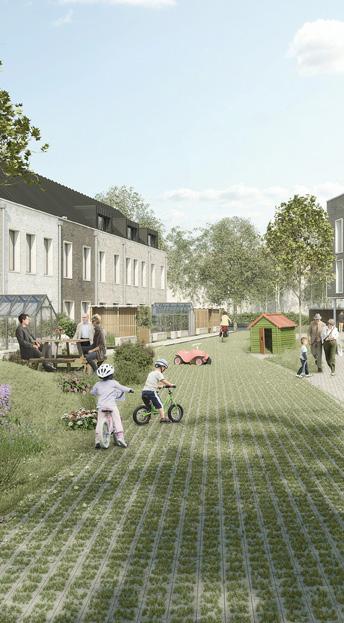
Co-living Will Broaden to Encapsulate Seniors, Empty Nesters and Retirees
It’s already recognised that ‘retirement living’ is changing, and it may be that co-living develops to capture this. In the US, coliving company Ollie has found that just under 20 percent of tenants are over the age of 50 — and about a third of those are in their 60s. Ollie has learnt that ‘millennial’ is more of a mindset than an age group.5
Modular Co-Living
The rise of modular construction and pre-fab housing may creep into the co-living market, as Berkeley Homes and other house builders look to achieve faster delivery for city centre developments, without compromising on design and quality.
Creative Cities Will Dominate But Most Growth Will Be Seen in London
Co-living thrives in cities whose economy offers growing employment, a young educated population, innovation, digital and physical connectivity and a large social, recreational and cultural offering. Based on this, we envisage that co-living will become even more prevalent in London as well as the following cities:



Introduction Our Projects
Our People
Greenford LB of Ealing
Authority: Ealing London Borough Council
Proposal: 2,118 new homes; 20,710 sqm of commercial & community floorspace
Services: Planning; Engagement; Transport
Status: Permission Granted (Development Commenced)
Iceni was instructed by Greystar to lead the preparation of a detailed application at the former GSK headquarters and former Sunblest bakery site in the London Borough of Ealing.
This application obtained approval for a residential-led mix of uses including: 1,965 new homes (including an element of affordable housing); 21,443 sqm of flexible commercial and community floorspace in use classes A1, A2, A3, A4, A5, B1, D1 and / or D2, a new two-form entry primary school, new pedestrian bridge across the canal, car and cycle parking, landscaping and associated works. Iceni has coordinated the planning application submission, including the Environmental Impact Assessment. The application was submitted in September 2016 following engagement with the local community, Council and GLA and approved at Committee in March 2017.
Iceni continues to act through the construction process with regards to the necessary planning conditions to enable prompt delivery on site, and most recently obtained approval of a Minor Material Amendment for an additional 153 homes enabled by, and helping to facilitate, a modular build.
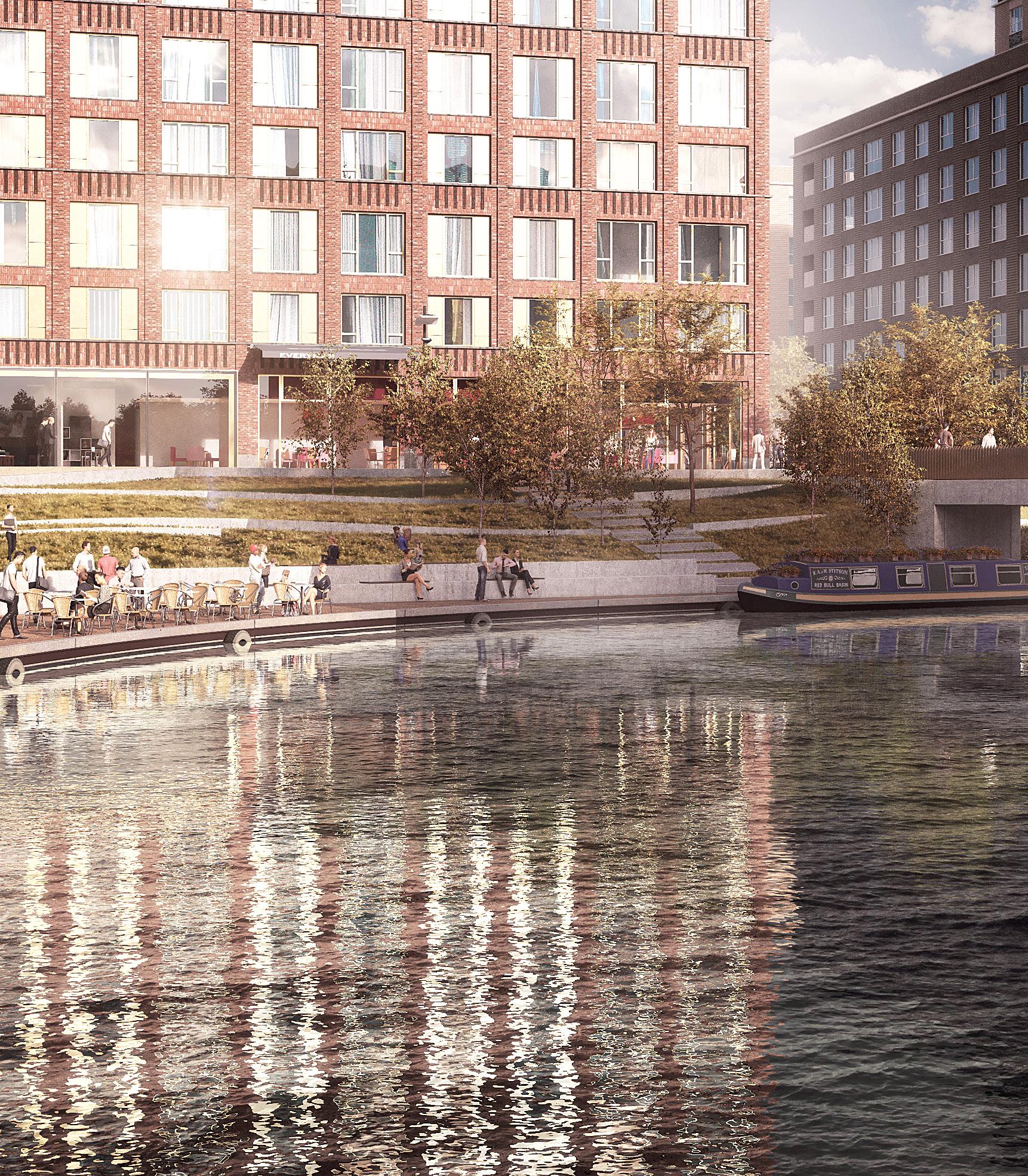
One Portal Way
Acton
Authority: Ealing London Borough Council
Proposal: 38 co-living units with communal living spaces and cycle storage
Services: Planning; Built Heritage and Townscape
Status: Permission Granted (Development Commenced)
Iceni have been acting on behalf of the site owners Imperial College London and their appointed Development Managers Frame RE. The proposals are to redevelop the current employment site for the provision of much needed new homes, workspaces, shops, community space and public green spaces.
The site is strategically located between North v station and the Acton Elizabeth Line station, and within walking distance from the future HS2 hub in Old Oak, making it one of the best-connected areas in the UK. As a result, the area, which forms part of the Old Oak and Park Royal Development Corporation (OPDC), has undergone dramatic change over the past few years. One Portal Way is the largest and most centrally located site in North Acton. However, the site is currently inaccessible to the public being surrounded by security features, railings, parking and vehicle access points associated with the site’s current tenant Currys plc (formerly Dixons Carphone). Therefore the site presents a significant opportunity to bring about real and much needed change to the public realm offer in North Acton. The proposed scheme maximises the site’s potential to knit together other developments, forming a new vibrant place with a 1.8-acre central public garden. The scheme comprises 1,325 new homes including homes for rent and sale, 35% of which will be affordable. On top of this, the scheme includes mix of co-living, coworking space, studio space and purpose-built workspaces. Iceni led the design team on the project and coordinated the submission of the planning application on our client’s behalf.
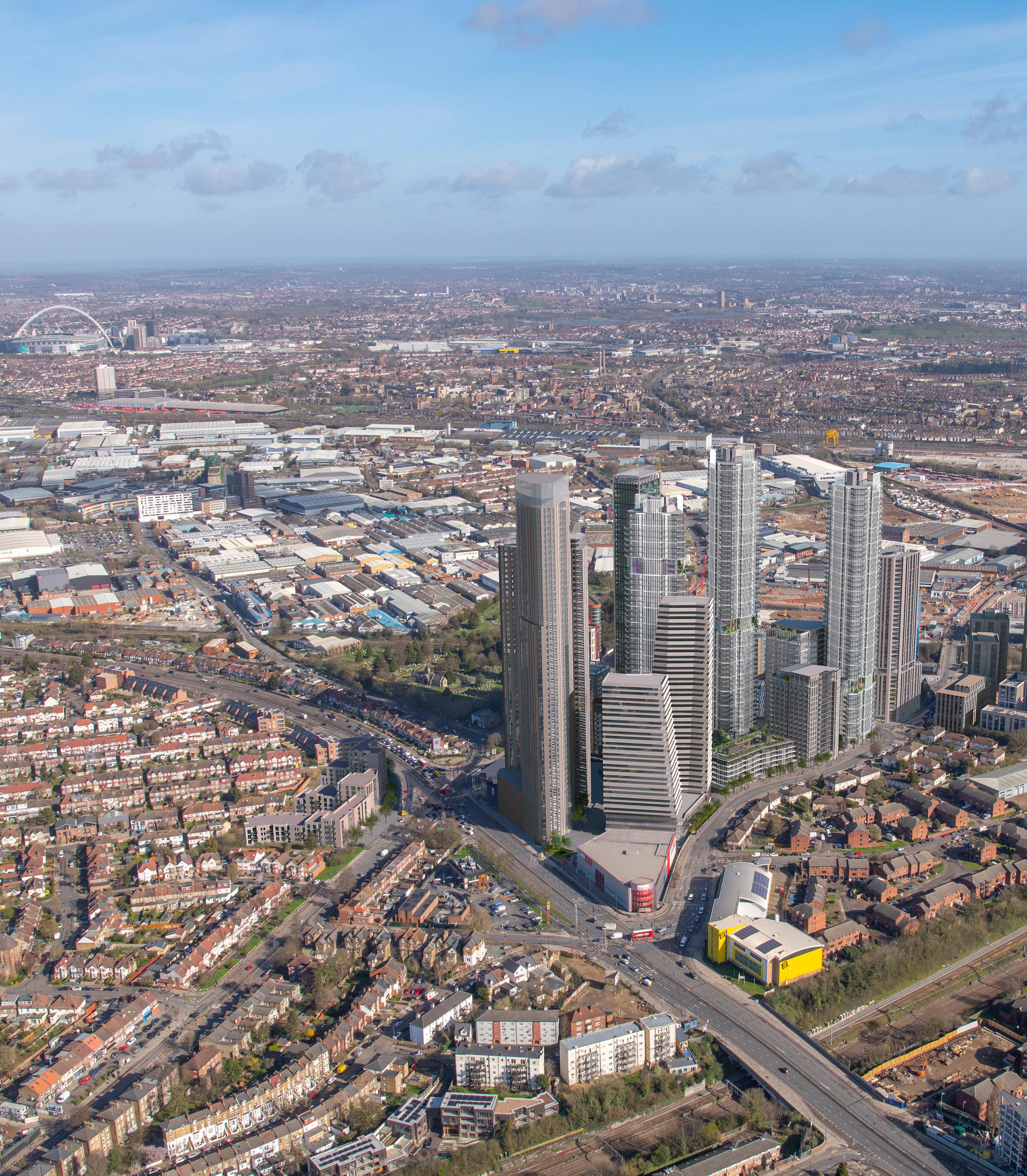
Assembly Place
Chelmsford
Authority: Chelmsford City Council
Proposal: 191 Co-Living Units with communal facilities and cafe
Services: Built Heritage and Townscape
Status: In Planning
Iceni’s Built Heritage and Townscape team have worked with their client, Highgate Capital, and architect GRID to develop a scheme of up to 10 storeys for what would be Chelmsford’s first purpose-built co-living scheme.
The proposal, next to the River Chelmer and the recently redeveloped Bond Street shopping centre, would enliven an important area of riverside walkway, and add a building of real quality to the edge of the City Centre. Sitting at a pivotal location on routes into the City Centre, the building addresses heritage sensitivities including a nearby Grade II listed building and Conservation Area, and modulates its height and massing to sit comfortably within its townscape surroundings. The scheme has twice been to DRP, with Iceni Projects playing a key role in developing the scheme’s design and advocating for its promotion.
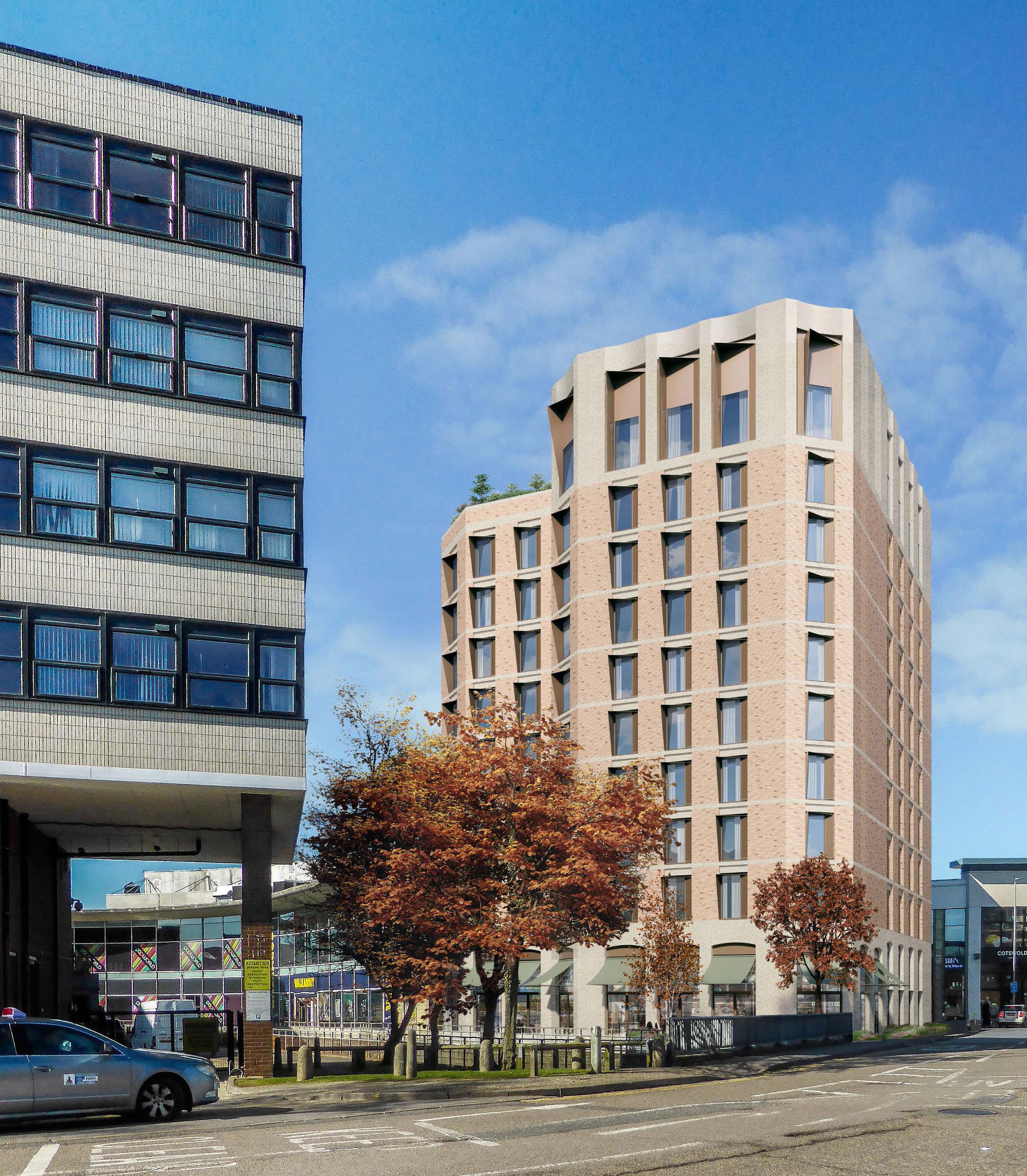
131-137 Broadway Ealing
Authority: Ealing London Borough Council
Proposal: 134 Co-Living Units with communal facilities and cafe
Services: Built Heritage and Townscape
Status: Consented
Supporting Luxgrove Capital Partners, and working closely with Matthew Allchurch Architects, Iceni’s Built Heritage and Townscape assisted in delivering a scheme of up to 9 storeys on this corner site.
Across two consents (an initial consent and a later extension along the Broadway), the team assisted in scheme design, advocacy and townscape testing to optimise the site’s delivery. This included responding to the Council’s emerging tall building policy. The scheme is now consented, and Section 106 signed, to allow it to be deliverable.
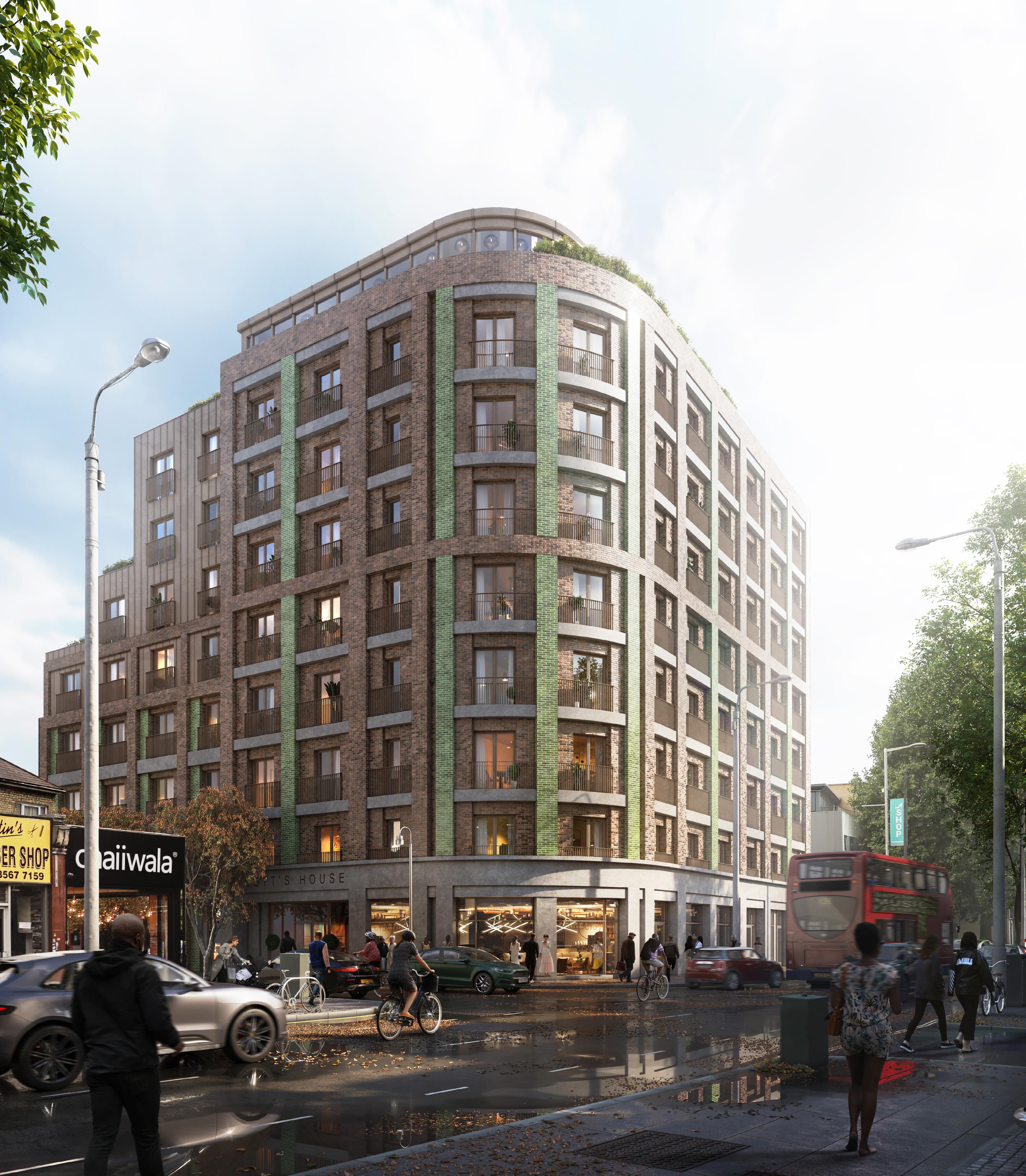
The Mall LB of Ealing
Authority: Ealing London Borough Council
Proposal: 38 co-living units with communal living spaces and cycle storage
Services: Planning; Built Heritage and Townscape
Status: Permission Granted (Development Commenced)
Iceni Projects advised Urbane London on one of their first schemes as a development company. Urbane London are a new development company, which seek to disrupt the traditional development and construction cycle of delivering homes. Urbane homes are digitally crafted and manufactured 100% offsite which means the company can deliver higher quality homes, at a cheaper price, erected 40% faster than traditional construction, on any London site of any scale.
This type of co-living is becoming increasingly popular in London Boroughs and is typically targeted at young professionals entering the private rented housing sector in London. It is intended that the development will create a vibrant community of young people interacting in the same social and physical environment, thereby creating a strong sense of place. The concept is based on providing a level of service and amenity normally found in a hotel environment with shared spaces (including kitchens, communal areas and laundry facilities). The unique nature of the housing product is such that it does not fall within the classification of a Class C3 (dwelling house) use and as such, it is deemed to be sui generis.
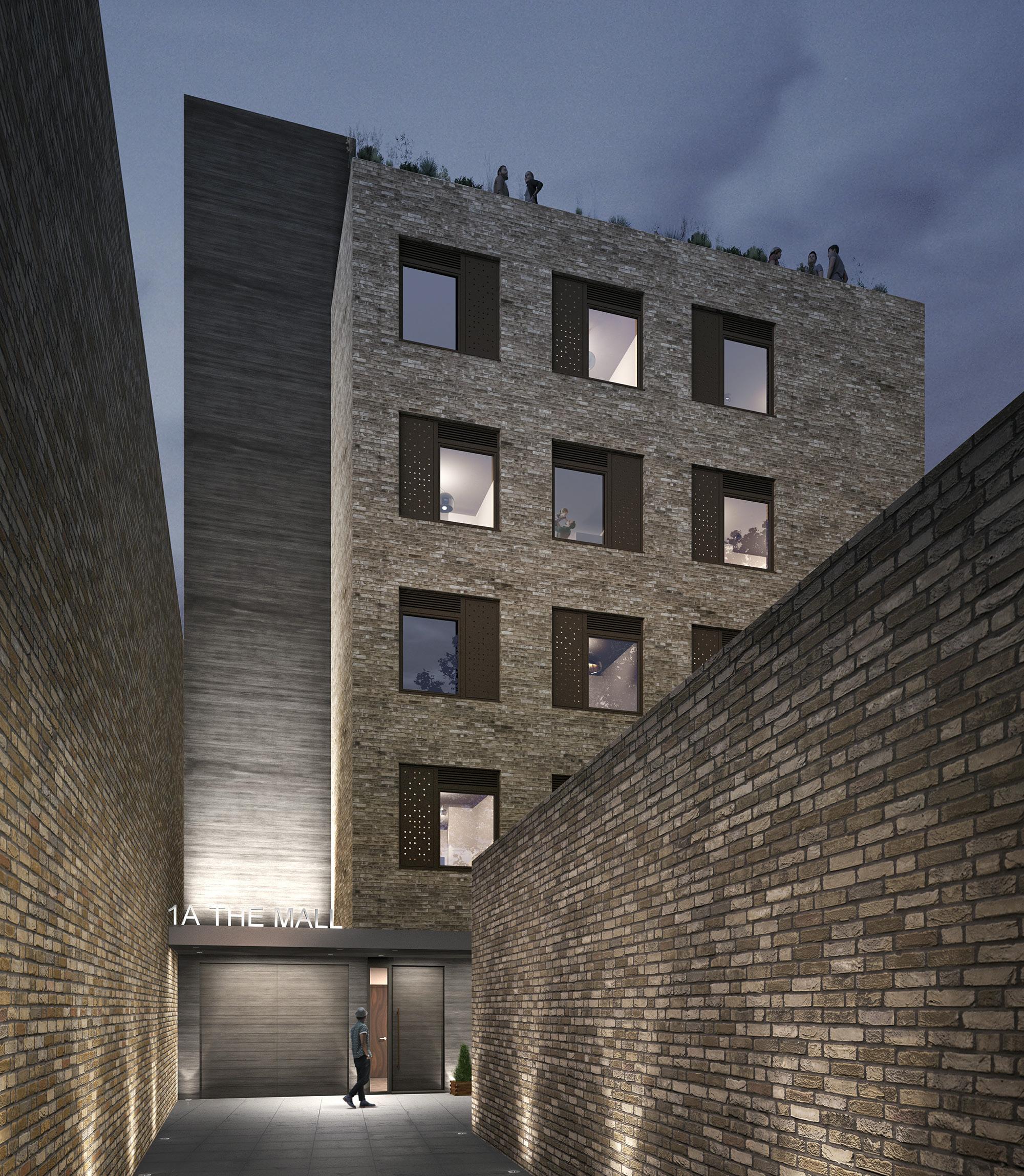
Bridle Path Watford
Authority: Watford Borough Council
Proposal: 363 Co-Living Units with communal facilities, landscaping and cycle and car parking
Services: Built Heritage and Townscape
Status: In Planning
One of a number of projects where Iceni have worked closely with Kosy Living, this scheme for a building of up to 16 storeys sits within one of Watford’s tall building areas, and proposes a significant scheme in terms of its scale and massing, which also delivers a large quantity of communal amenity for residents, including roof gardens.
Iceni have supported the team through two rounds of DRP, and worked closely with the architect to develop an approach to the scheme’s tower that was able to resist significant pushback (prior to the team’s involvement) on the overall height of the scheme. The scheme is now in planning, with the hope that consent might be granted in 2025.
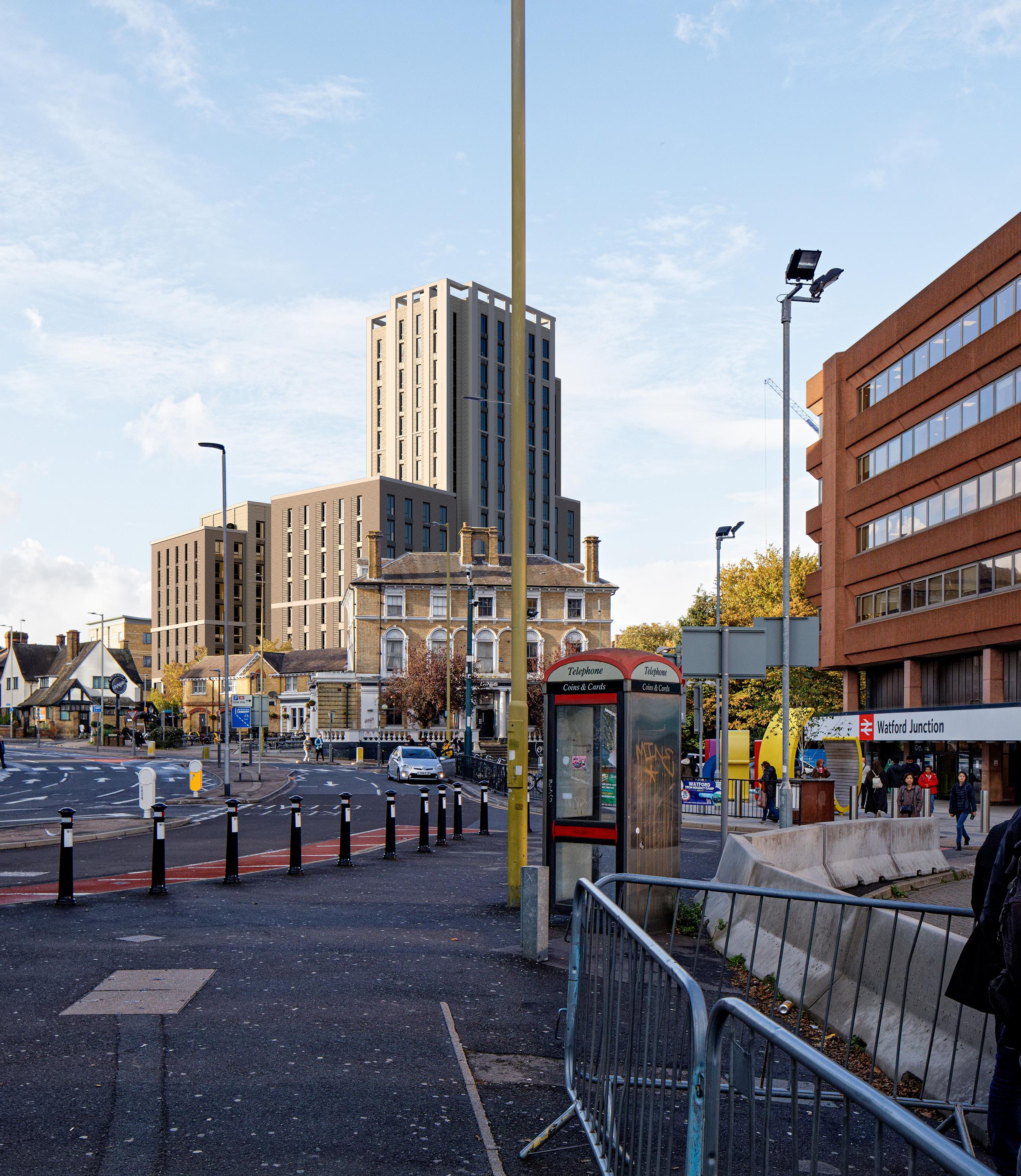
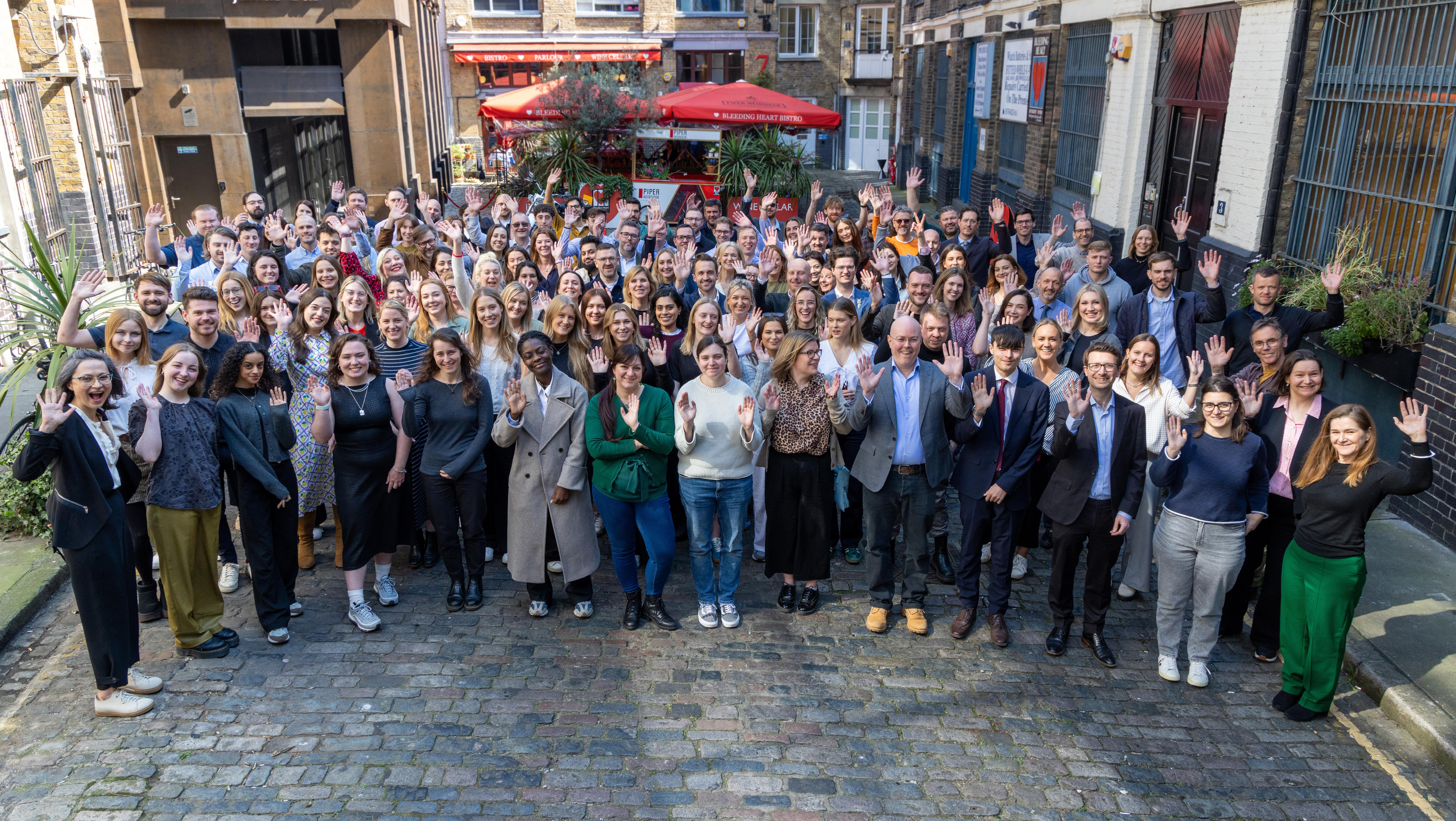
Introduction Our Projects
Our People
Laurie Handcock Director, Built Heritage & Townscape
T: 020 3640 8508
M: 07795 031 741
E: lhandcock@iceniprojects.com
Clients value Laurie’s ability to dissect complex heritage arguments, and build a strong and comprehensive case in favour of development.
Laurie has been Director of Iceni’s Heritage Team since January 2016, following five years of consultancy experience at RPS CgMs, and also leads the firm’s Townscape specialism, formally launched in 2018. He is an experienced, commercially minded heritage and townscape professional, whose focus and expertise lies in negotiating complex consents across a variety of scales. He has a particularly detailed knowledge of policy and legislation and its application, gleaned and kept keen by significant and on-going public inquiry experience, and is also adept at inputting into the design process.
His experience ranges from urban, mixed-use heritage-led regeneration schemes to strategic housing and infrastructure projects, and detailed work with sensitive, highly graded buildings and landscapes. He cut his teeth working on the redevelopment of the Stirling Prize-nominated London Bridge Station and leading on heritage matters in the delivery of an Outline Consent for Alconbury Weald, a major employment and residential development of the Second World War and Cold War airfield of RAF Alconbury.

Ashleigh Bullough Associate Director, Planning
T: 020 3640 8508
M: 07741 656 453
E: abullough@iceniprojects.com
Ashleigh’s eye for detail and passion for development helps ensure a smooth journey through the planning system
An Associate Director within Iceni’s Planning Team, Ashleigh has delivered a broad range of projects since joining in May 2018, specialising in high-density residential schemes on urban brownfield land.
Her work is focused on the outer London boroughs and areas on the edge of the capital. She is currently leading several complex urban developments, including estate regeneration and alternative residential projects such as Build-to-Rent and Co-Living. She is skilled in navigating constrained sites, drawing on meticulous attention to detail and close collaboration with consultants and local authorities to support successful planning outcomes.
As the lead for Iceni’s affordable housing sector, Ashleigh has extensive insight into the challenges of affordable delivery and is working with a number of Registered Providers to bring forward much-needed homes across Greater London. Before joining Iceni, she undertook a secondment to MHCLG, contributing to the drafting of the NPPF. She began her career at Peter Brett Associates, delivering evidence-base research for LPAs in London and beyond. Her passion for urban planning stems from undergraduate studies in Geography and Sociology at the University of Aberdeen, followed by an MSc in City Planning and Regeneration from the University of Glasgow. She became a Chartered Member of the RTPI in 2018.

Archie Noden Senior Planner, Planning
T: 020 3640 8508
M: 07909 532 161
E: anoden@iceniprojects.com
Since joining Iceni, Archie has worked on a number of mixed-use projects across London and around the UK, combining a personable approach with planning expertise to help drive projects forward and ensure the best outcomes for clients
These major projects include a co-living scheme in Sutton, major residential led schemes in Croydon and Barnet, an affordable housing scheme in Lambeth and a number of commercial and retail projects in London and in the UK. Since February 2025, Archie passed his APC and is MRTPI accredited.
Archie joined Iceni’s London Planning Team in September 2023 following time at the planning consultancy, DP9, where he worked on prestigious projects including Battersea Power Station. Before joining DP9, Archie worked at both the London Borough of Wandsworth and Richmond Upon Thames with their development management and enforcement teams.
Archie’s educational background includes an undergraduate degree in Planning and Geography at Sheffield Hallam University, where he completed a placement year at Leeds City Council and Haringey Council. He then lived in Toronto for six months where he studied Urban Planning at Ryerson University.

Finn O’ Donoghue Planner, Planning
T: 020 3640 8508
M: 07795 441 090
E: fodonoghue@iceniprojects.com
Finn joined Iceni’s Planning team while he completed his Masters studies in Spatial Planning at UCL
Before starting with the Iceni Planning team, Finn worked as a graduate planner and then City of Nature Officer at Birmingham City Council, Europe’s largest unitary authority. In working on the City of Nature project, Finn developed his skills as a communicator and organiser, working across siloes to deliver a complex, multifaceted project that sought to embed biodiversity and nature into Birmingham’s built environment.
Finn is an experienced planning consultant with a broad track record across London and beyond, working on everything from Co-living and Purpose-Built Student Accommodation to traditional C3 housing, heritage conversions, and affordable homes. He’s equally at ease navigating the complexities of commercial portfolios across Central and Outer London, having advised on virtually every type of commercial use.
Finn began his planning career at Birmingham City Council, working in Planning Enforcement and Biodiversity Recovery - experience that gave him a strong grounding in the realities of local government and the importance of balancing development ambitions with environmental responsibility. He went on to study at University College London, further deepening his understanding of the planning system and the wider forces shaping urban growth.

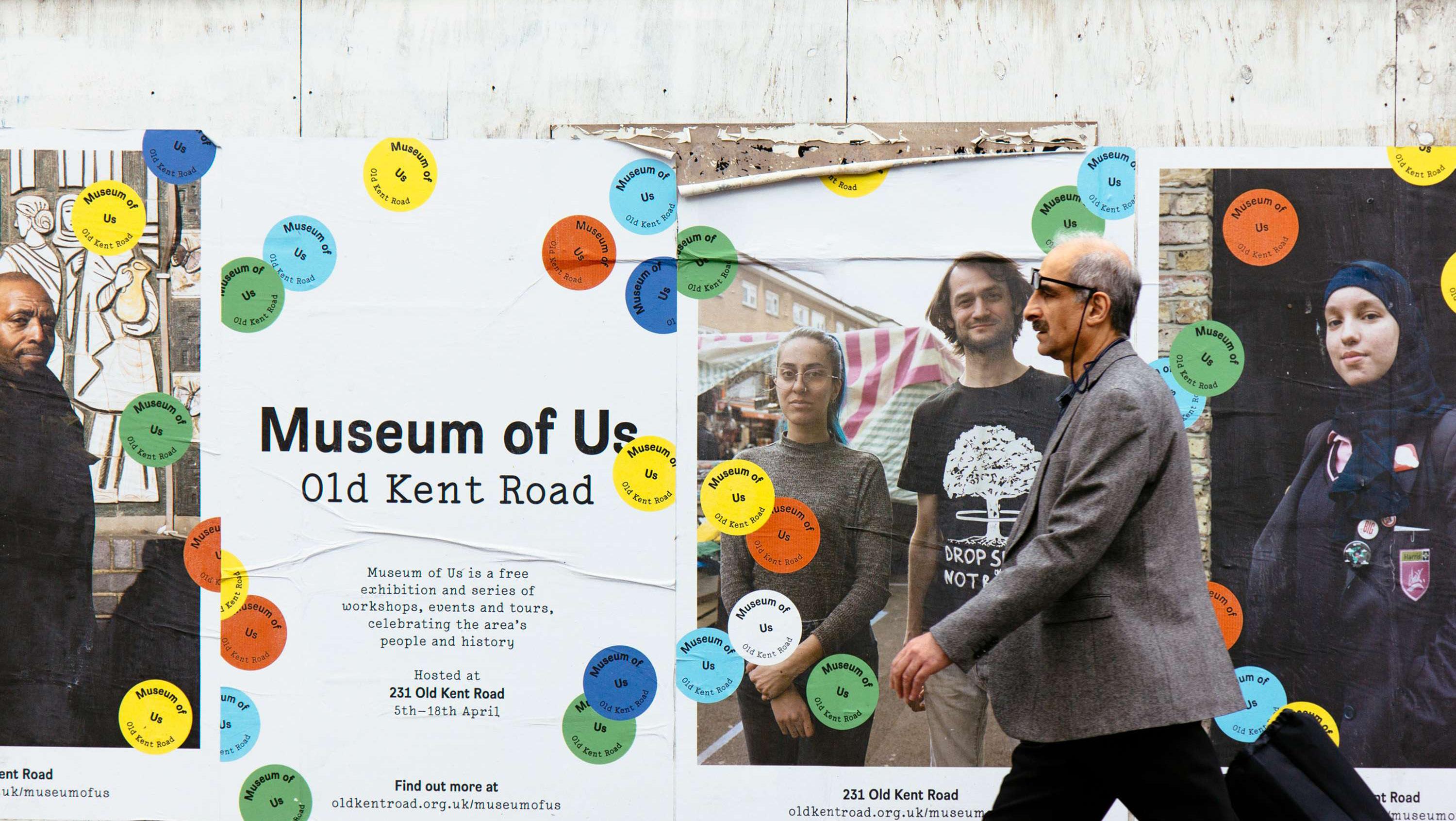
Introduction Our Projects
Our People
Value
Added Value Sustainable Development Scorecard
Irrespective of the scale, complexity or societal benefits of a development proposal, it will always attract local opposition, which makes decision taking harder.
Iceni prides itself on formulating new, distinct and innovative tools and techniques for demonstrating why new development should be supported and why it will have positive transformational positive effects on communities.
We have developed our own techniques for formulating development proposals, operating at the local level within communities to identify how developments can have the greatest effect on peoples lives, and be delivered in a highly successful and sustainable way.
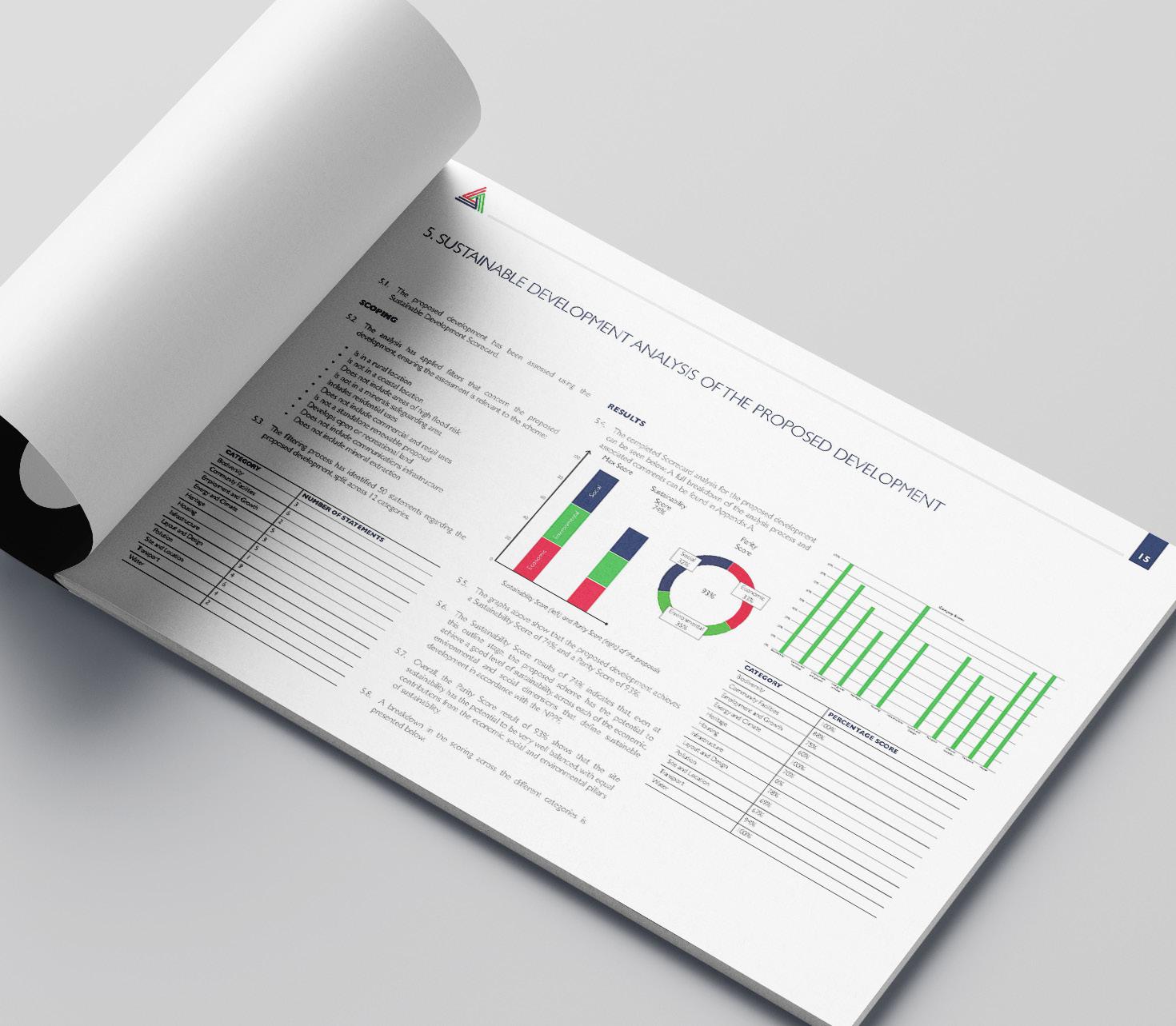
Added Value Iceni Intelligence
Whilst Iceni is a national consultancy, we pride ourselves on having a thorough local understanding of the communities we are seeking to change. We therefore have a suite of area based experts to understand, monitor and identify planning and political change across geographic areas.
This work extends beyond monitoring of Local Plans and considers issues such as the political composition and priorities of an area. Objectively Assessed Need and signs of market failure across the full use spectrum from housing, through employment to social and transport infrastructure. We also monitor significant planning decisions and the ways in which planning policies are applied in practice through casework decisions at Planning Committees and the Planning Inspectorate. This work greatly enhances the quality of the commercial advice we provide.
Added Value iSite
iSite pulls together a number of services to enable the promoter of a project – but equally the respective consultant, local authority, consultee, local community and wider interested party – to gain the knowledge and understanding of a site or location that historically has only been possible from an in-depth site visit. Moreover, many projects are of the size and scale that even a physical site visit renders difficult to comprehend.
The key focus of iSite is to provide an intelligent digital design and consultation tool. This incorporates the use of drone photography, 360° camerawork (think Google Street View for buildings), interactive, virtual consultation halls and project web sites that can pool together all of the information for effective file management and sharing. So whether you need to initiate an initial site survey appraisal, team site visit, pre-application meeting, public consultation event or committee presentation, iSite can help.
iSite wont be for everyone. We understand that. But if you are looking for cost-effective ways to progress with your proposals, it could be the answer.

Added Value Place
Sites don’t start with, and aren’t defined by, planning policy. They’re defined by people. And people bring a melting pot of ideas and opinions.
Not everyone will necessarily share the view that a site needs developing, regenerating or renewal, especially in areas undergoing massive amounts of change or those where nothing has happened despite the will to see it happen.
They are sites that often mean more to people than an abstract red line on an OS plan, where physical and social barriers override site boundaries. Where people have a connection to their incidental bit of city they call home.
They have a past, they have a present and a future. Just like people.
Iceni Place delivers an approach that welcomes all of these views, fears, hopes and dreams into a collaborative process built on listening. It starts with people, asking “What does success look like to you?” and ends with a legacy of better places.
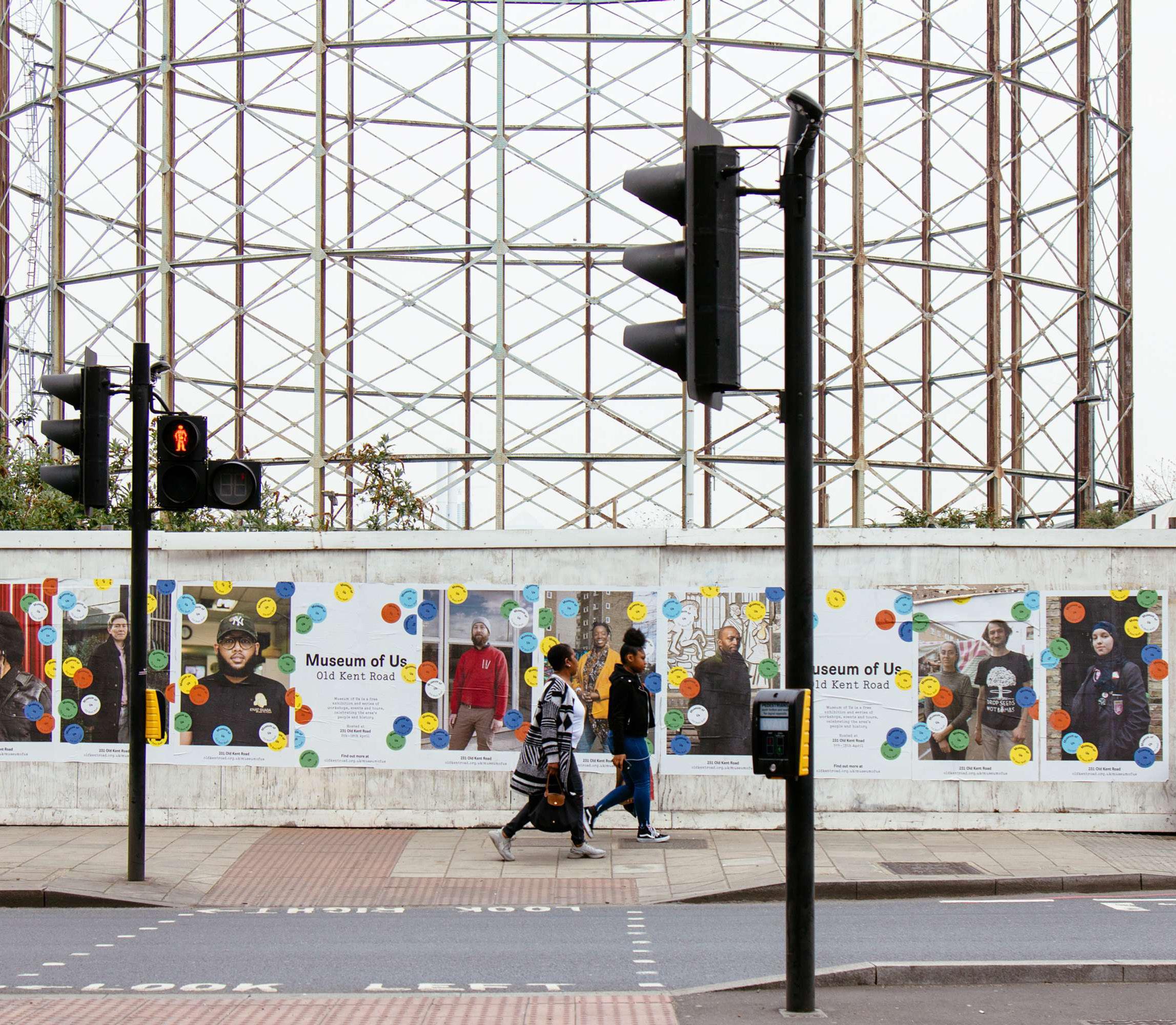
Added Value Iceni Futures
The Iceni Futures team was set up in response to the rapidly changing world and the acknowledgment that more than ever, we need to create futureproofed and sustainable development. The teams role is to assess, predict and influence change across the development industry. In practice that means exploring how places and people will function in the future, analysing existing barriers and providing strategic advice which aligns with clients goals and aspirations to ensure development is fit for the future.
The team doesn’t claim to be experts in every new discipline or product, but they understand the existing barriers and outdated development processes that persist across the industry and the importance of working innovatively and smarter to deliver client visions and change that actually works. It’s understood that each client will need tailored advice and the Futures team look to work collaboratively to provide advice which is tailored to a specific site, company strategy or product. Essentially, if you’re looking to plan for or capitalise on the future, Iceni Futures can be there to support you and drive that ambition.

Archaeology | Built Heritage & Townscape | DCO’s | Design | Economics | Engagement | Impact Management Landscape | Place | Planning | Transport Birmingham: 20 Colmore Circus Queensway, Birmingham, B4 6AT
Edinburgh : 14 -18 Hill Street, Edinburgh, EH2 3JZ
Glasgow : 201 West George Street, Glasgow, G2 2LW
London : Da Vinci House, 44 Saffron Hill, London, EC1N 8FH
Manchester : WeWork, Dalton Place, 29 John Dalton Street, Manchester, M2 6FW www.iceniprojects.com | iceni-projects | iceniprojects
